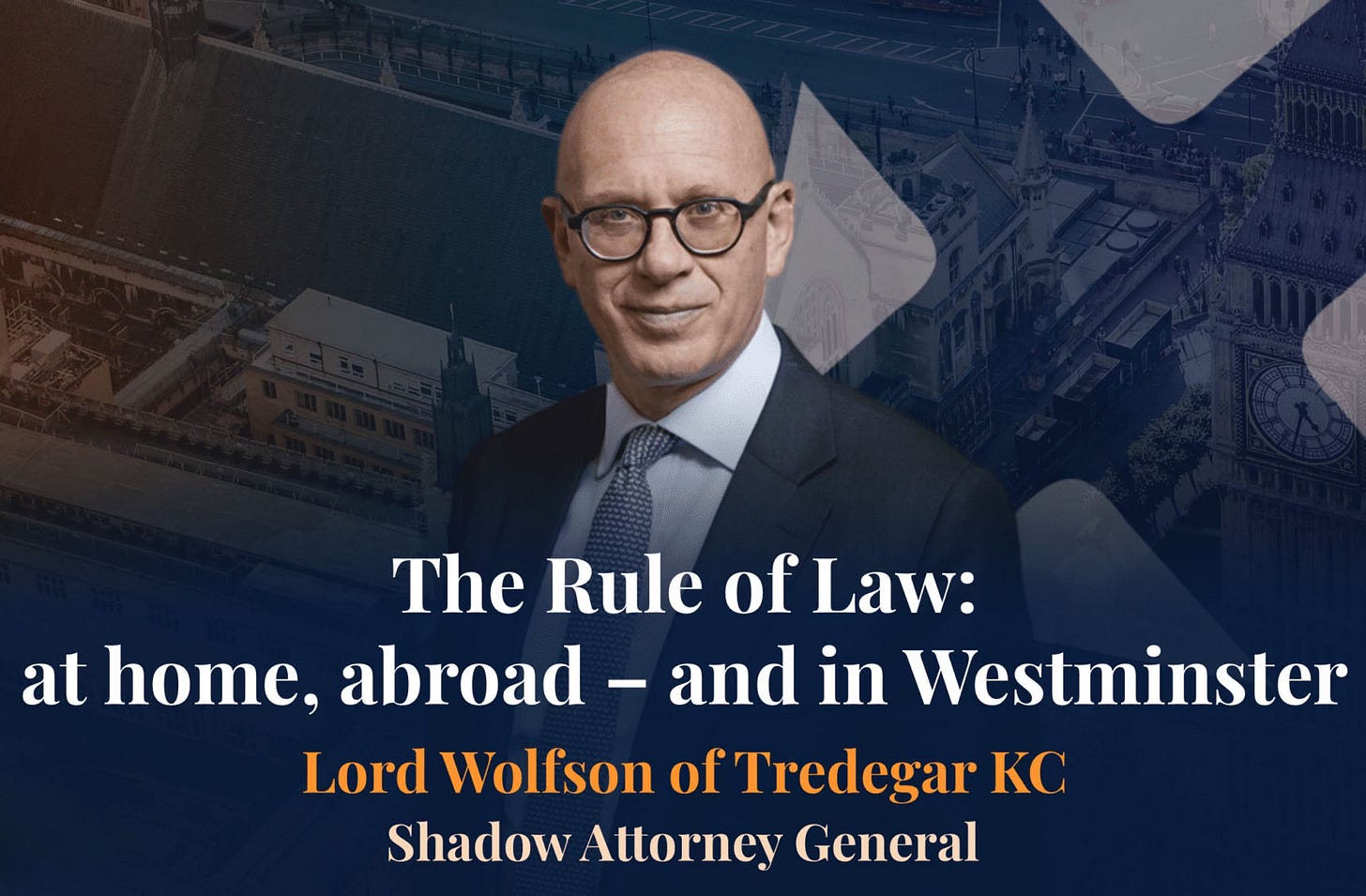The political gulf between the attorney general and his Conservative shadow will deepen later today when Lord Wolfson of Tredegar KC delivers a major speech on the rule of law.
At an event organised by the think tank Policy Exchange, Wolfson is expected challenge some of the assertions made by Lord Hermer KC in his lecture last October to the Bingham Cen…
Keep reading with a 7-day free trial
Subscribe to A Lawyer Writes to keep reading this post and get 7 days of free access to the full post archives.




